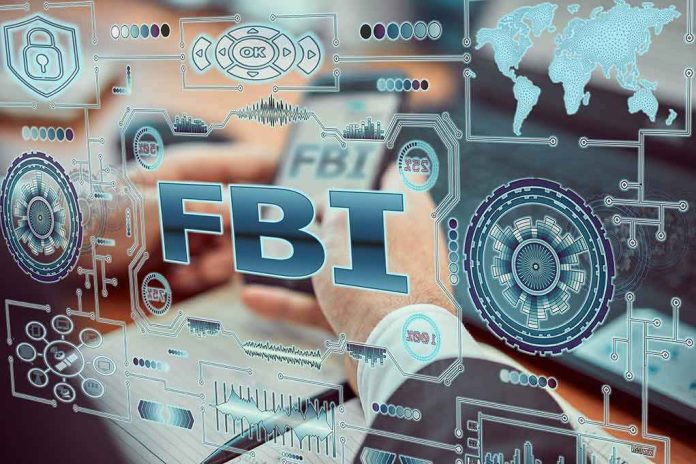
FBI informants and witnesses were hunted down and killed after Sinaloa cartel hackers successfully breached the agency’s surveillance systems, highlighting a catastrophic vulnerability in America’s law enforcement cybersecurity defenses.
Key Takeaways
- Hackers linked to the Sinaloa cartel gained access to FBI phone records and Mexico City surveillance systems in 2018, successfully identifying and eliminating informants and witnesses connected to the El Chapo case.
- The Justice Department’s Inspector General audit revealed this shocking security breach, demonstrating how easily criminal enterprises can exploit vulnerabilities in modern surveillance technology.
- President Trump designated certain cartels as terrorist organizations through executive order, recognizing their sophisticated systems of insurgency and infiltration of governments across the Western Hemisphere.
- U.S. intelligence officials view the technological capabilities of cartels as an existential threat requiring immediate investment in cyberterrorism units, specialized training, and education reform.
- The FBI’s catastrophic security failure demonstrates the urgent need for advanced hacking and counterterrorism technology to combat increasingly tech-savvy criminal organizations.
Cartel Hackers Infiltrate FBI Systems With Deadly Consequences
In a stunning breach of federal law enforcement security, hackers working for the Sinaloa drug cartel successfully infiltrated FBI surveillance systems and accessed sensitive phone records in 2018. The breach, revealed in a Justice Department Inspector General audit, allowed the cartel to identify and subsequently eliminate key informants and witnesses involved in the high-profile case against Joaquin “El Chapo” Guzman. This unprecedented cybersecurity failure exposed a critical vulnerability in America’s law enforcement infrastructure, demonstrating how criminal enterprises are rapidly evolving their technological capabilities to evade justice and eliminate threats.
The cartel hackers didn’t stop at accessing phone records. They managed to gain control of Mexico City’s sophisticated surveillance camera network, using this infrastructure to track potential informants and witnesses. The audit paints a disturbing picture of how easily modern criminal organizations can exploit vulnerabilities in technology that was designed to protect the public. This case marks a significant escalation in the capabilities of drug cartels, transforming them from traditional criminal organizations into technologically advanced entities capable of outmaneuvering federal agencies through digital means.
Trump’s Recognition of the Cartel Threat
President Trump has been ahead of the curve in recognizing the existential threat posed by technologically advanced cartels. Through executive order, he designated certain cartels as terrorist organizations, acknowledging their complex systems of insurgency and asymmetric warfare. “The executive order specifically highlighted how these organizations have successfully infiltrated governments throughout the Western Hemisphere, establishing control over illegal traffic across America’s southern border while conducting campaigns of violence and terror against both citizens and law enforcement personnel,” said President Trump.
The recent FBI breach validates President Trump’s assessment of cartels as national security threats rather than mere criminal organizations. By exploiting technological vulnerabilities within federal law enforcement systems, the Sinaloa cartel demonstrated precisely the type of sophisticated threat that the Trump administration warned about. The cartel’s ability to access protected surveillance systems and eliminate witnesses represents a direct assault on America’s justice system and highlights the urgent need for the enhanced security measures and aggressive enforcement strategies that the President has consistently advocated.
Intelligence Community Sounds the Alarm
U.S. intelligence officials, including those from the CIA, have characterized the technological capabilities of drug cartels as an existential threat requiring immediate and comprehensive countermeasures. The Justice Department audit specifically emphasized the need for substantial investment in specialized cyberterrorism units, comprehensive agent training programs, and reformed educational initiatives designed to cultivate a new generation of cybersecurity experts. Without these measures, federal agencies risk falling further behind in the technological arms race against increasingly sophisticated criminal enterprises.
“The implications of this security breach extend far beyond the immediate loss of life. It reveals fundamental weaknesses in how federal agencies protect their most sensitive operations and personnel,” according to The Justice Department. The audit underscores the lengths to which drug cartels will go to eliminate obstacles to their operations, whether those obstacles are rival gangs, government officials, or law enforcement personnel. The technological sophistication displayed in this breach indicates that cartels are no longer limited by geographical boundaries or traditional criminal methodologies—they have evolved into transnational threats capable of projecting power through digital means.
The Path Forward: Cybersecurity Reform
Addressing the threat posed by technologically advanced cartels will require a fundamental reimagining of how federal agencies approach cybersecurity. The Justice Department audit specifically recommends developing specialized education programs designed to cultivate the next generation of cybersecurity experts who can anticipate and counter the evolving threats posed by criminal organizations. This educational reform must be paired with significant investments in cutting-edge counterterrorism technology and comprehensive training for existing personnel to ensure they can effectively navigate an increasingly complex digital landscape.
The FBI breach represents a watershed moment in the ongoing battle against transnational criminal organizations. It demonstrates that the traditional tools and methodologies employed by law enforcement are increasingly insufficient against adversaries who have embraced technological innovation. Eliminating the threat posed by cartels will require federal agencies to advance their hacking and counterterrorism capabilities dramatically. Under President Trump’s leadership, the recognition of cartels as terrorist organizations provides the necessary framework for mobilizing the resources needed to meet this challenge head-on and protect America’s security interests both at home and abroad.





